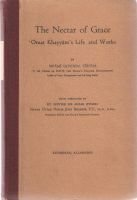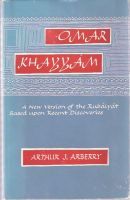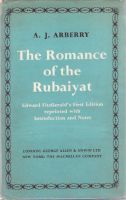Fugitive articulation of an all-obliterated tongue – Edward FitzGerald’s Rubáiyát of Omar Khayyám and the politics of collecting. B.J. Black.
In: On exhibit. Victorians and their museums. Charlottesville, University Press of Virginia, 2000, p. 48-66.
In a chapter on the Rubáiyát and “the politics of collecting,” Black argues that FitzGerald appropriated an oriental text in order to domesticate it.


